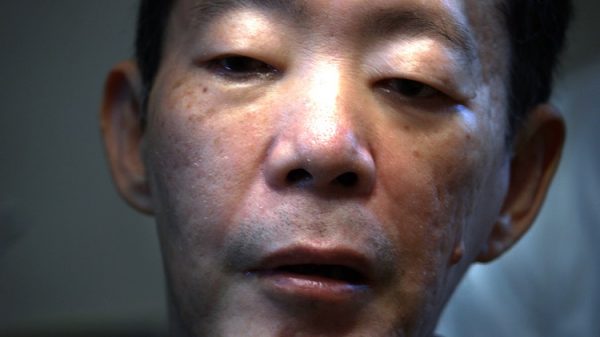
MOMI
Oct. 19, 2018 Staff Report
It’s dark and difficult to watch, but it’s also a fascinating look at the human mind.
The Museum of the Moving Image — 36-01 35th Ave. in Astoria’s Kaufman Arts District — will present 12 screenings of the 2017 documentary “Caniba” from Friday, Oct. 19, through Sunday, Oct. 28.
The 97-minute film’s main focus is Issei Sagawa, a Japanese national who was caught disposing of two suitcases filled with the decomposing remains of his Dutch classmate, Renée Hartevelt, outside of Paris in 1981. Allegedly, Sagawa, who was 32 at the time, had shot Hartevelt while she was translating German poetry in his apartment. (Both were students at the Sorbonne.) He reportedly had sex with the corpse and ate parts of her body.
After being declared legally insane, Sagawa went to a psychiatric institution, but he checked himself out in 1985. Regardless of being ostracized by much of society, he was then able to make money by writing novels and restaurant reviews, acting in films, and even drawing manga, a Japanese comic art form.

Issei Sagawa, a Japanese national (Grasshopper Film)
As “Caniba” progresses, the viewers observe Sagawa’s daily life and find out that he still wants to consume more human flesh even though he is old and unwell following a stroke. The simple thought of cannibalism excites him sexually and spiritually. Viewers also learn about his complicated relationship with his brother and main caretaker, Jun, who also harbors some anti-social urges. There’s a sibling rivalry complete with jealousy, resentment, and battles for attention.
By the end, it appears that the movie, which is in Japanese and French with English subtitles, is more about the human mind than the actual crime or “the incident” as the brothers call it.
Directors Véréna Paravel and Lucien Castaing-Taylor will be on hand to discuss their work during the sessions on Oct 19 and Oct 20.
They also joined forces to produce “Leviathan,” a 2012 documentary about the extremely dangerous commercial fishing industry in New England. Both are part of Harvard University’s Sensory Ethnography Lab, an interdisciplinary center created by the departments of Anthropology and Visual and Environmental Studies with the Graduate School of Design.
Paraval is a filmmaker and anthropologist who has work in the permanent collection at Manhattan’s Museum of Modern Art. Castaing-Taylor, a professor of Visual Arts and Anthropology at Harvard, runs the lab.
Tickets are $15. Here’s the schedule: Oct. 19 at 7:30 pm; Oct. 20 at 2 pm and 4 pm; Oct 21 at 4 pm and 6:30 pm; Oct. 24 at 5 pm; Oct. 25 at 5 pm; Oct. 26 at 5 pm; Oct. 27 at 4 pm and 6:30 pm; and Oct. 28 at 4 pm and 6:30 pm.
“Caniba” will show in the museum’s Bartos Screening Room.

